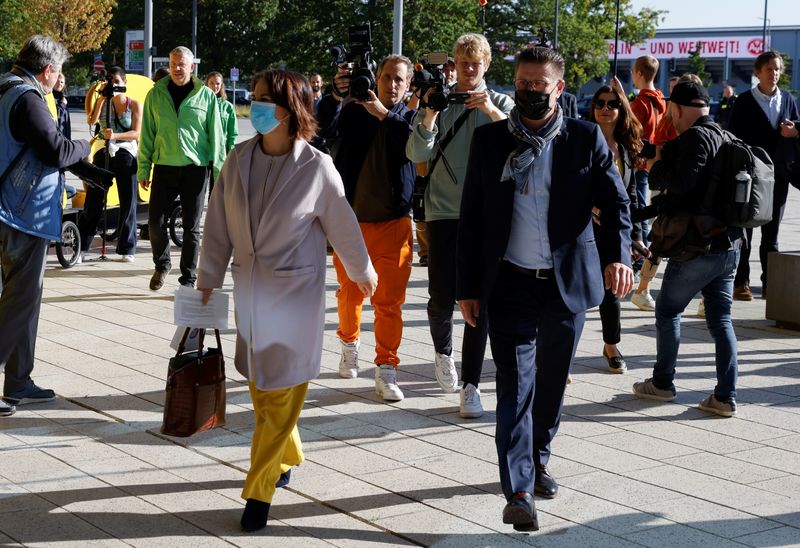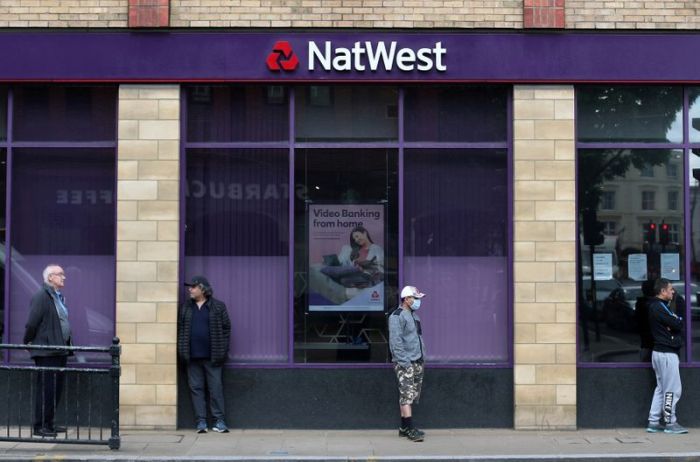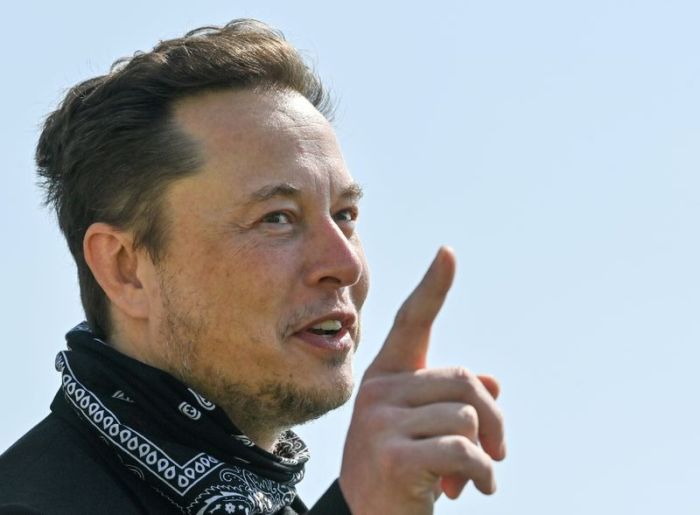By Andreas Rinke
BERLIN (Reuters) -Germany’s Social Democrats (SPD) and potential partners said initial coalition talks had gone well on Thursday, as the leader of the conservative bloc seeking to stay in office hinted he might resign after a poor election showing.
The centre-left SPD narrowly beat the conservatives, whose outgoing Chancellor Angela Merkel has governed since 2005, in the Sept. 26 federal ballot, but without winning a majority.
The SPD is seeking to form a coalition with the Greens and business-friendly Free Democrats (FDP), which finished third and fourth in the election.
The three parties began talks on Thursday and, after all reporting progress, said they would reconvene on Monday.
“The talks were intensive and marked by a sincere atmosphere,” said SPD general secretary Lars Klingbeil.
Separately Armin Laschet, the leader of Merkel’s CDU and chancellor candidate for the conservative bloc comprising his party and the Bavarian CSU, signalled he would be willing to resign if that facilitated rival coalition talks between his bloc, the Greens and the FDP.
Laschet is fighting for his political life after leading the conservatives to their worst-ever national election result last month.
He said he would propose a party congress to decide on a swift “reshuffle” that would look at all roles “from chairman (leader) all the way to the party board.”
“It is not about Armin Laschet,” he told a news conference. “It is about (a government) project for the country. And therefore if one wants another solution, this is possible.”
Unlike many other European countries, where the president or monarch invites one party leader to try to form a government, in Germany it is up to the parties themselves to decide who should ally with whom.
Their decisions will determine Germany’s political future after 16 years with Merkel at the helm, its appetite to shape Europe’s largest economy for the digital era, and the extent of its willingness to engage with allies on global issues.
Asked about reports that Laschet had offered to resign, FDP general secretary Volker Wissing told a news conference his party would not hold parallel talks with the conservatives while pursuing a possible alliance with the SPD and the Greens.
“The formation of a government cannot be decided on the basis of individuals or internal leadership issues,” Wissing added.
(Writing by Paul Carrel, Editing by Raissa Kasolowsky and John Stonestreet)

























